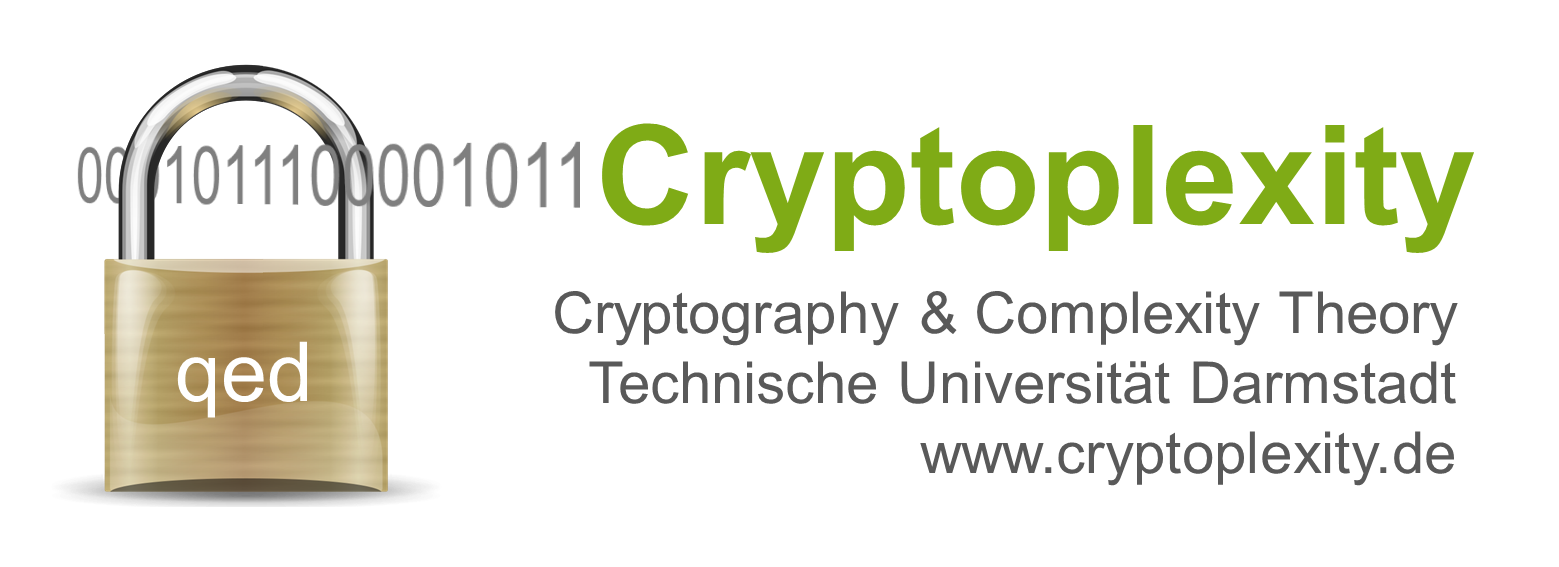
Förderung: DFG, 02/2011-06/2016
Hintergrund: Das Ziel des Heisenberg-Programms ist es, „herausragenden Wissenschaftlerinnen und Wissenschaftlern, die alle Voraussetzungen für die Berufung auf eine Langzeit-Professur erfüllen, zu ermöglichen, sich auf eine wissenschaftliche Leitungsposition vorzubereiten und in dieser Zeit weiterführende Forschungsthemen zu bearbeiten…Bewerberinnen und Bewerber für eine Heisenberg-Professur müssen zusätzlich zu der Begutachtung durch die DFG an der aufnehmenden Hochschule ein Berufungsverfahren durchlaufen. Die aufnehmende Hochschule muss die Professorenstelle schaffen und deutlich machen, inwiefern diese eine strukturelle Weiterentwicklung für sie darstellt. Des Weiteren muss nach der fünfjährigen DFG-Förderung die Übernahme in den Etat der Hochschule gewährleistet sein, soweit dies landesrechtlich zulässig ist.“ (DFG)
Inhalt (nur auf englisch verfügbar): Modern cryptography to a large extend deals with the design of secure protocols which achieve a clearly stated security goal in a well-specified attack model. Any suggested protocol needs to be accompanied by a security proof demonstrating that the goals are met; without a proof, protocols are not considered secure, even if they appear to be reasonably strong. Today a special type of proof, called black-box reduction, is pervasive in cryptography and provides a very powerful tool to analyze protocols. For some important problems it has been proven, though, that black-box reductions cannot exist, thus showing the hardness of finding a proof that the desired security goals are achieved. These negative results are summarized under the name black-box separations.
The goal of the research project „Scrutinizing Black-Box Separations in (Quantum) Cryptography“ (BBQCrypt)" is to burst open the doors to new design methods for cryptographic protocols, overcoming widely-accepted limitations due to black-box separation results. Non-black-box results are at a very early stage of scrutiny, and black-box separations are still viewed as strong evidence that some limitations are inherent, especially in the area of practical cryptographic constructions. This confined way of thinking, however, forecloses ambitious efforts to find solutions beyond the current state of knowledge. The project should therefore help to overcome this narrow view and to break new ground for cryptographic tools and constructions.
Bemerkung: Die Unterstützung im Rahmen des Heisenberg-Programms umfasst neben der Professur eine formal unabhängige Sachbeihilfe, BBQCrypt, die bereits im Februar 2011 begonnen hat, während die Heisenberg-Professur erst im Juli 2011 startete.
Mitarbeiter*innen: Paul Baecher, Pooya Farshim, Victoria Fehr, Marc Fischlin.


